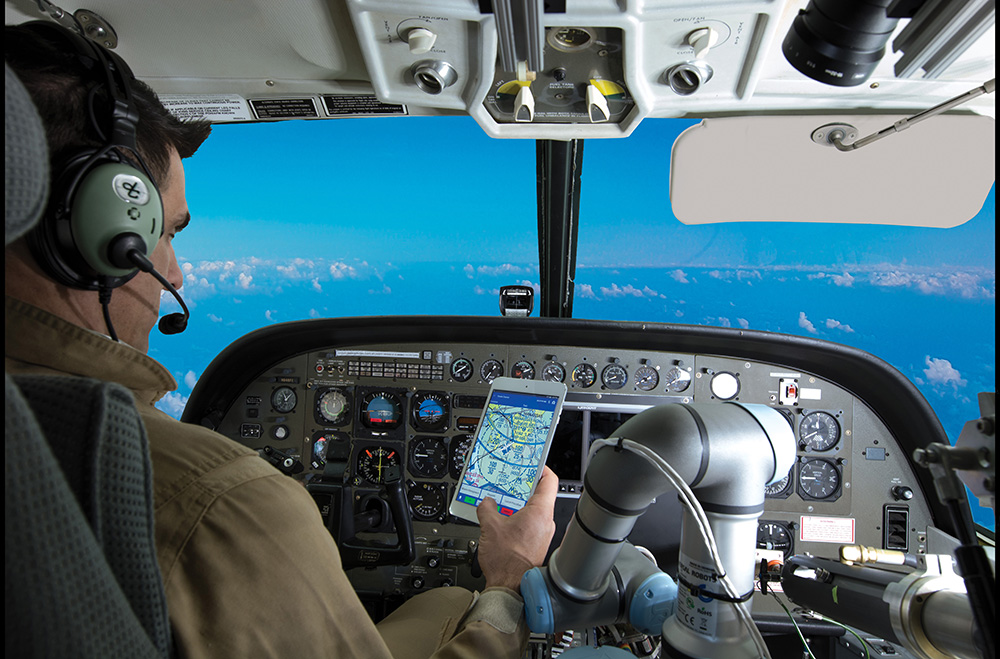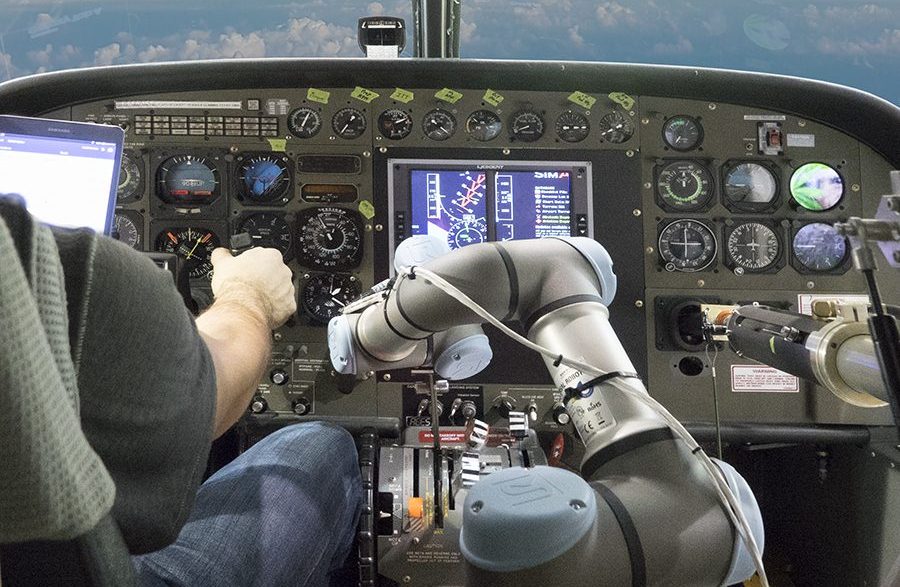
Robohub.org
CARNAC program researching autonomous co-piloting
DARPA, the Defense Advanced Research Projects Agency, is researching autonomous co-piloting so they can fly without a human pilot on board. The robotic system — called the Common Aircraft Retrofit for Novel Autonomous Control (CARNAC) (not to be confused with the old Johnny Carson Carnac routine) — has the potential to reduce costs, enable new missions, and improve performance.
Unmanned aircraft are generally built from scratch with robotic systems integrated from the earliest design stages. Existing aircraft require extensive modification to add robotic systems.
RE2, the CMU spin-off located in Pittsburgh, makes mobile manipulators for defense and space. They just received an SBIR loan backed by a US Air Force development contract to develop a retrofit kit that would provide a robotic piloting solution for legacy aircraft.
“Our team is excited to incorporate the Company’s robotic manipulation expertise with proven technologies in applique systems, vision processing algorithms, and decision making to create a customized application that will allow a wide variety of existing aircraft to be outfitted with a robotic pilot,” stated Jorgen Pedersen, president and CEO of RE2 Robotics. “By creating a drop-in robotic pilot, we have the ability to insert autonomy into and expand the capabilities of not only traditionally manned air vehicles, but ground and underwater vehicles as well. This application will open up a whole new market for our mobile robotic manipulator systems.”
Aurora Flight Sciences, a Manassas, VA developer of advanced unmanned systems and aerospace vehicles, is working on another similar DARPA project, Aircrew Labor In-Cockpit Automation System (ALIAS), and is designed as a drop-in avionics and mechanics package that can be quickly and cheaply fitted to a wide variety of fixed and rotor aircraft, from a Cessna to a B-52. Once installed, ALIAS is able to analyze the aircraft and adapt itself to the job of the second pilot.
tags: c-Aerial, RE2, robotics






